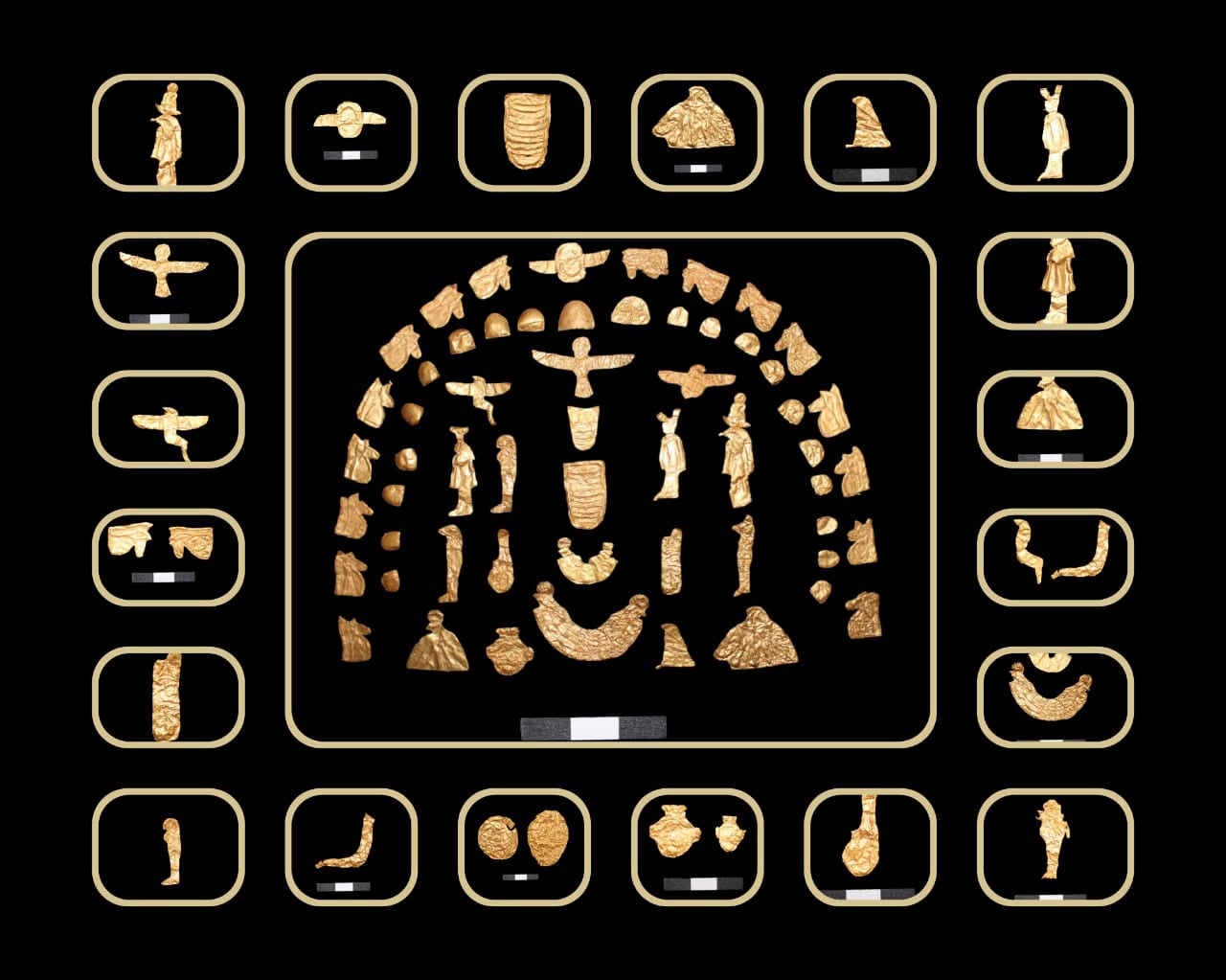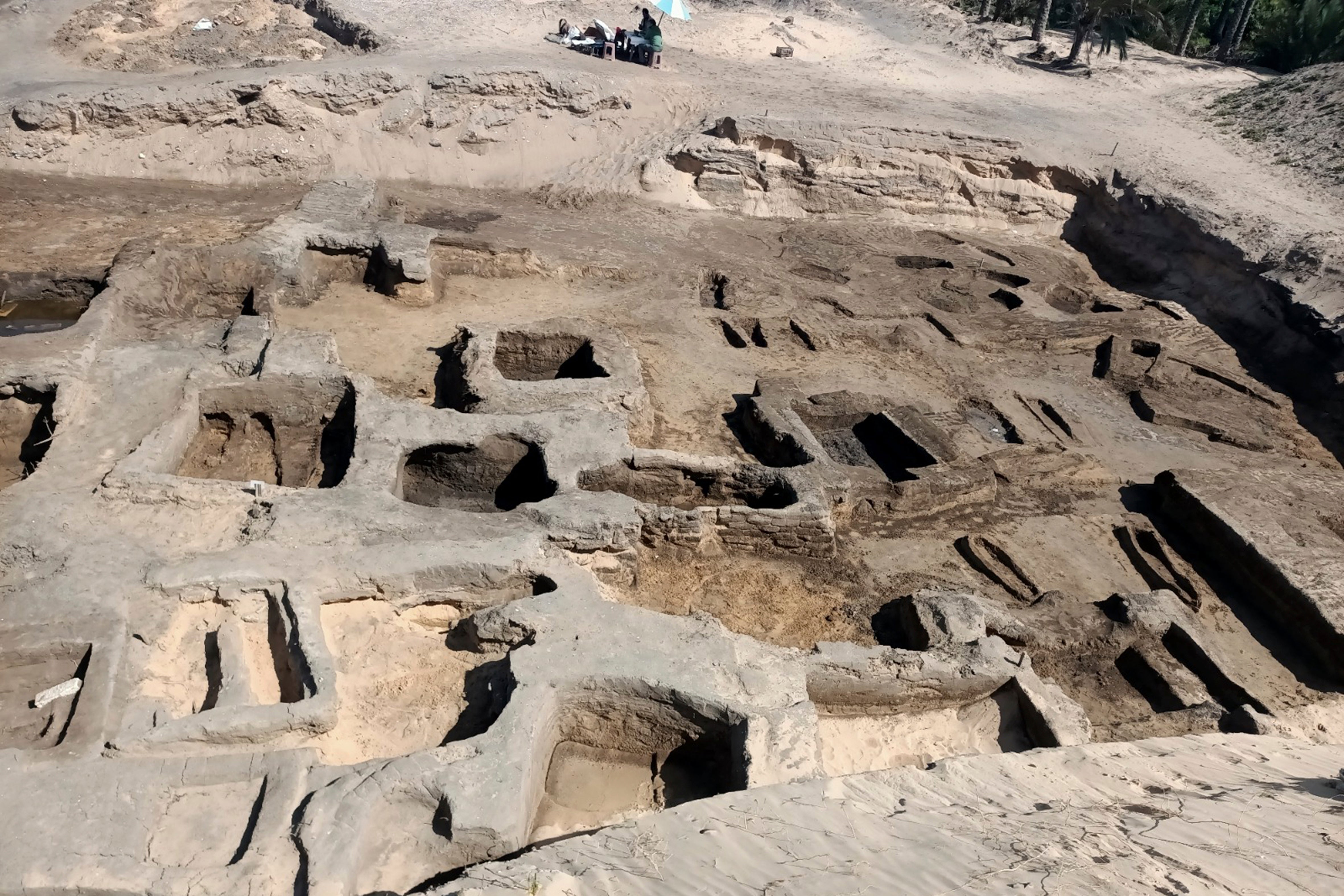Archaeologists discover trove of ancient artifacts from Egypt’s last dynasty
The artifacts include gold pieces and jewelry dating back to Egypt‘s Late and Ptolemaic periods

Your support helps us to tell the story
From reproductive rights to climate change to Big Tech, The Independent is on the ground when the story is developing. Whether it's investigating the financials of Elon Musk's pro-Trump PAC or producing our latest documentary, 'The A Word', which shines a light on the American women fighting for reproductive rights, we know how important it is to parse out the facts from the messaging.
At such a critical moment in US history, we need reporters on the ground. Your donation allows us to keep sending journalists to speak to both sides of the story.
The Independent is trusted by Americans across the entire political spectrum. And unlike many other quality news outlets, we choose not to lock Americans out of our reporting and analysis with paywalls. We believe quality journalism should be available to everyone, paid for by those who can afford it.
Your support makes all the difference.A trove of ancient artifacts from Egypt’s last dynasty has been discovered in 63 tombs in the Nile Delta area and experts are working to restore and classify the finds.
An official with the country’s antiquities authority confirmed the news on Monday.
The artifacts include gold pieces and jewelry dating back to Egypt's Late and Ptolemaic periods, and some items could be displayed at one of the country's museums, said Neveine el-Arif, spokeswoman for the Ministry of Tourism and Antiquities.
An Egyptian archaeological mission with the Supreme Council of Antiquities discovered the mud-brick tombs at the Tell al-Deir necropolis in Damietta city in Damietta governorate, the ministry said in a statement last month.
Other items found in the area of the tombs include statues, funerary amulets and a pottery vessel containing 38 bronze coins dating back to the Ptolemaic period.

The Ptolemaic dynasty was Egypt's last before it became part of the Roman Empire. The dynasty was founded in 305 B.C. after Alexander the Great of Macedonia took Egypt in 332 B.C. and one of his generals, Ptolemy, became Ptolemy I. Leadership was handed down through Ptolemy’s descendants and ended with Cleopatra.
Egypt exhibited artifacts from the Ptolemaic period for the first time in the Egyptian Museum in Cairo in 2018, with around 300 artifacts on display.
Subscribe to Independent Premium to bookmark this article
Want to bookmark your favourite articles and stories to read or reference later? Start your Independent Premium subscription today.